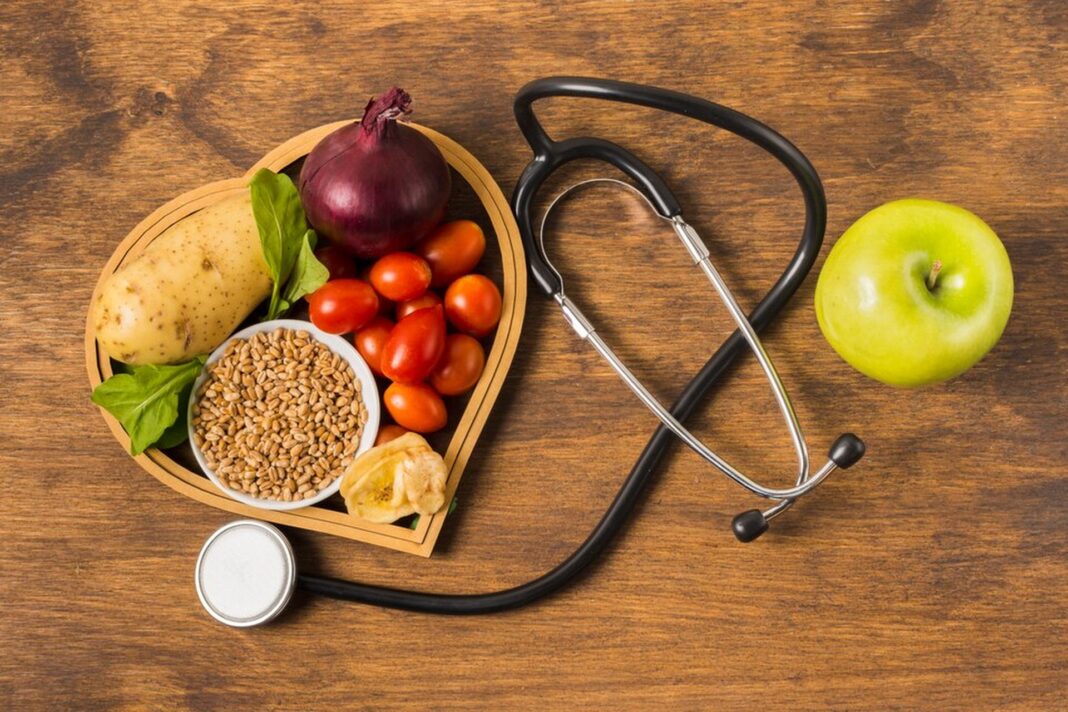Nutrition is full of misconceptions. Proteins, vitamins, gluten, and carbohydrates are weighty. Many misconceptions surround these crucial minerals and chemicals. Clarity is desired. Misconceptions may cause unhealthy diets. A balanced view is essential. Common carb, protein, vitamin, gluten, and detox diet myths will be examined in this article. It separates truth from falsehood. The goal is to clarify nutrition today.
The Truth About Carbs: Are They Really The Enemy?
Carbs are often considered negatively. Many believe they cause weight gain. This notion is flawed. Key energy source: carbs. The body requires them to operate. They are essential to every diet. Not all carbs are equal. Simple carbohydrates like sugars break down quickly. They raise blood sugar. Complex carbohydrates are best. They originate from beans, veggies, and whole grains. These maintain energy.
Overeating refined carbohydrates causes the problem. Processed foods include them. They may cause weight gain and other health concerns. Avoiding carbohydrates should not be the goal. People should choose healthy alternatives. Any diet needs balance. Prioritize whole grains, fruits, and veggies. High in fiber and minerals.
Portion sizes matter. Overeating, even healthy carbohydrates, may cause weight gain. A balanced diet includes carbohydrates. They aid digestion and energy. They need not be eliminated. Carbohydrate education is essential. Information aids decision-making. You shouldn’t consider them the adversary. A healthy lifestyle requires moderation and balance.
Debunking The Protein Obsession: How Much Do You Really Need?
Protein is another popular nutrient. Obsession with high-protein diets is frequent. More is always better, say many. Quite the contrary. The body requires protein in moderation. Balanced diets suit most individuals. Muscle development and repair need protein. Enzyme production is also affected. The daily suggested consumption is easily misinterpreted.
Most adults should consume 46–56 grams daily. The quantity depends on age, sex, and physical activity. Athletic people may require extra protein. Knowing that excess protein does not improve health is crucial. The body can only utilize so much protein. The remaining may be expelled or fatted.
Focusing on whole foods is key. Lean meats, dairy, legumes, and nuts are great. Supplements are unnecessary for most. Whole foods and nutrition. They promote health. Diverse diets are crucial. This fulfills all nutritional demands. High-protein diets might cause health issues. Dehydration and renal strain are examples. Nutritional lifestyles emphasize balance. Protein quality matters over quantity.
Vitamins And Supplements: Do You Actually Need Them?
Vitamins and supplements are an everyday staple. Many take them without hesitation. Simple assumption: they improve health. This doesn’t always happen. The body needs vitamins for several purposes. They boost immunity, vitality, and more. However, entire foods provide the greatest nutrients.
Food contains many healthy components. Vitamin-rich foods include fruits, vegetables, entire grains, and lean meats. Usually, a balanced diet satisfies nutritional demands. Supplements may be needed. Certain medical disorders and pregnant women may need more nourishment. Most don’t need them. Toxicity and illness may result from overuse.
Health professionals must be consulted before using supplements. Individual requirements vary tremendously. Regular blood testing detects inadequacies. One must watch their nutrition. Food-based vitamins should be prioritized. Whole foods include vitamins, minerals, and fibers. Together, they promote health better than individual vitamins. Diet awareness is crucial.
Gluten: Is It As Bad As Everyone Says?
Gluten is contentious. Understandable uncertainty about being blamed for numerous health conditions. Many believe gluten is harmful. This applies to some. Celiac illness requires gluten-free diets. Most people can drink it safely.
Wheat, barley, and rye contain gluten. This provides food flexibility. Many foods include protein, including bread and pasta. Gluten seldom causes health concerns. Misunderstandings result from an inability to absorb. Symptoms include digestive and neurological disorders.
Gluten-free eating has surged. This route is chosen by many without necessity. Sometimes, it causes vitamin deficits. Gluten-free options can lack nutrition. These may be heavy in sugar and fat. The difference between need and desire is crucial. Gluten-free does not guarantee health. Personal health awareness matters. People should evaluate their gluten reactions. Personal needs must guide decision-making.
Detox Diets: Myth Or Miracle?
Detox diets are promoted for bloating and lethargy. Many say they detoxify. However, this idea needs investigation. Body detoxification is built-in. The liver and kidneys remove poisons naturally. The research underlying detox diets is typically incorrect. Restrictions might provide momentary weight reduction but are unsustainable.
Most detox diets remove dietary categories. It may cause vitamin deficits. It also encourages poor eating habits. Long-term health is not gained by fast weight reduction or limitations. Instead, a balanced diet is healthy. Choose unprocessed foods. Fruits, vegetables, lean meats, and whole grains aid detoxification.
Healthy lifestyle adjustments are recommended for detoxification by experts. Water is good for you. Regular exercise improves digestion and circulation. Enough sleep supports natural detoxification. There is no magic answer. Lasting health improvements come from sustainable practices. People may engage in harmful activities on detox diets. They typically neglect healthy diets and living.
What Are The Risks Of High-Carb Diets?
High-carb diets may cause weight gain. Poor carb choices may raise blood sugar. This applies to refined carbohydrates. Constant blood sugar increases might create energy dips. It might cause cravings and overeating. Permanent consequences may include insulin resistance. This raises type 2 diabetes risk.
Are Protein Supplements Necessary?
Everyone doesn’t need protein supplements. They may aid athletes and energetic people. However, most individuals can get protein from meals. Whole foods include nutrients and supplements. A balanced diet usually keeps you healthy.
How Can I Know If I Need To Take Vitamins Or Supplements?
Healthcare professionals should be consulted. Blood tests detect inadequacies. Nutritionists advice on diets. Personal health awareness is crucial. Prioritize whole foods for nutrition.
Signs Of Gluten Sensitivity?
Bloating, diarrhea, and lethargy are gluten-sensitivity symptoms. Headaches and skin concerns may occur. Monitoring symptoms and seeing a doctor are crucial. An elimination diet may reveal gluten sensitivity.
Are Detox Diets Safe?
Risky detox diets. Most remove vital nutrients. Short-term limitations might cause weariness and irritation. Balanced eating is safer for health. Choose long-term healthy practices for detoxification.































